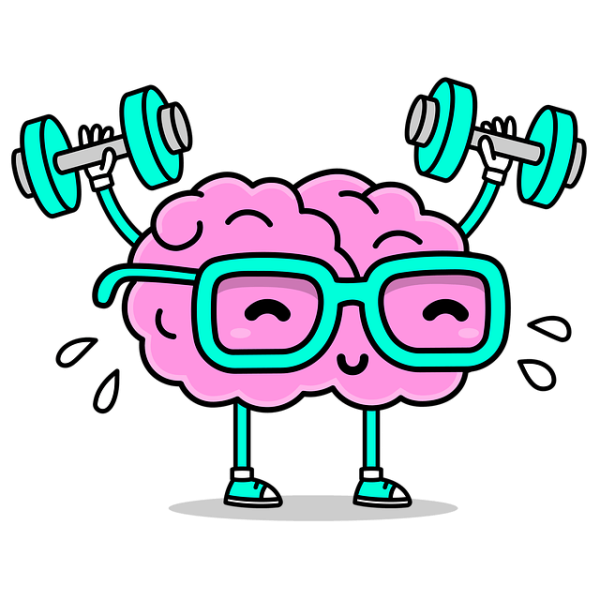Besides the benefit of physical fitness, playing sports as an adult is an incredible way to stay mentally fit. Mental health benefits apply in particular to recreational sports players, from the beginner adult recreational athlete to the weekend warrior.
Coming out of a time when our worlds were turned upside down and mental health challenges exploded, sports became a reprieve for many. People turned to activities like golf, tennis, pickleball, mountain biking, or anything similar outdoors.
The stats back this up. A recent article in Sports Business Journal citing a report from the Sports Fitness Industry Association reveals 2021 saw the highest increase in sports and fitness activity participation since 2016. A whopping 232.6 million Americans participated in sports and fitness.
Anecdotal Evidence That Playing Sports Benefits Mental Health
As someone who has experienced mental health obstacles in my life, I can say playing sports has had a significant impact on helping me cope. In addition to clearing my head, the feel-good chemicals that kick in after playing sports boost my mood. Plus, the camaraderie of teammates is a bonus that helps me feel more connected and supported.
What Does The Research Say About Mental Health and Sports?
There has been a lot of research on how physical activity and social interaction can fend off depression, which makes joining a sports team or league the perfect solution to improving your mental health.
Some noteworthy takeaways about mental health and sports from different research studies:
- Group sports participation can protect people from depression.1
- In one study, sports participation was the only physical activity to benefit two aspects of mental health in adults: perceived stress and psychological distress. The other activities in the study were commuting to work via biking or walking, housework, and leisure walking or biking. 2
- Sports and exercise can contribute to reduced suicide risk.3
- A study of young adults who participated in sports showed better cognitive and emotional abilities than their sedentary counterparts.4
More Science-y Stuff About Physical Activity and Mental Health
When you play sports, you obviously participate in physical activity. While some sports don’t quite meet stereotypical physical activity standards (I’m talking to you, bowlers*), most are intense enough to release feel-good neurotransmitters like endorphins, endocannabinoids, dopamine, serotonin, glutamate, and GABA. At the same time, physical activities like playing sports can reduce cortisol, a stress-related hormone.
What Do All Those Neurotransmitters Do?

Dopamine
Dopamine plays an integral role in brain function and is known as the pleasure neurotransmitter. It’s released during pleasurable activities and helps with memory, learning, emotional well-being, and motor control. Physical activities like sports increase dopamine production. Dopamine can help with depression as well.5
Serotonin
Low levels of serotonin can contribute to depression. Serotonin is another mood-boosting neurotransmitter that increases with sporting activities.5 Get updates and exclusive special offers. No spam–just valuable content. join the aps squad
Endorphins
Endorphins have been the neurotransmitter most typically associated with the feel-good benefits of exercise. They are often attributed to “runner’s high,” but further research is shifting that belief. Endorphins are released as a result of intense physical activity, and they are a natural opioid and can help relieve pain. However, the credit given to endorphins is now believed to be the result of ecannabinoids.
Endocannabinoids
They are lesser known than endorphins, but recent research shows ecannabinoids might have a bigger role than previously thought. Endocannabinoids are one of the body’s natural pain blockers and mood elevators. Aerobic activity, like sports, increases endocannabinoid release by the body.6
Glutamate and GABA
During intense physical activity, like playing a sport, GABA and glutamate increase. This is important because low levels of GABA and glutamate are associated with depression.7
Improved Mental Health Isn’t the Only Benefit of Recreational Sports
There are so many additional health benefits to playing recreational sports. Staying active helps you deter things like obesity, diabetes, and strokes. Adding a regular sporting event into your routine can also keep your bones and heart strong, reduce your cholesterol, and improve your coordination.
How Adults Play Sports Can Help
If your mental health could use a recharge, try joining an adult recreational sports league. You can view the APS Directory to find one. And join the APS Community to interact with other adult athletes like yourself!
*Yes, bowling is a sport.
Footnotes
- Stevens, M., Lieschke, J., Cruwys, T., Cárdenas, D., Platow, M. J., & Reynolds, K. J. (2021). Better together: How group-based physical activity protects against depression. Social Science & Medicine, 286, 114337. https://doi.org/10.1016/j.socscimed.2021.114337↩︎
- Asztalos, Melinda & Wijndaele, Katrien & Bourdeaudhuij, Ilse & Philippaerts, Renaat & Matton, Lynn & Duvigneaud, Nathalie & Thomis, Martine & Duquet, William & Lefevre, Johan & Cardon, Greet. (2008). Specific associations between types of physical activity and components of mental health. Journal of science and medicine in sport / Sports Medicine Australia. 12. 468-74. 10.1016/j.jsams.2008.06.009.↩︎
- A review of the social impacts of culture and sport TAYLOR, Peter, DAVIES, Larissa, WELLS, Peter, GILBERTSON, Janet and TAYLEUR, William Available from Sheffield Hallam University Research Archive (SHURA) at: http://shura.shu.ac.uk/9596/↩︎
- Passarello, N., Varini, L., Liparoti, M., Troisi Lopez, E., Sorrentino, P., Alivernini, F., Gigliotta, O., Lucidi, F., & Mandolesi, L. (2022). Boosting effect of regular sport practice in young adults: Preliminary results on cognitive and emotional abilities. Frontiers in Psychology, 13. https://doi.org/10.3389/fpsyg.2022.957281↩︎
- Sheffler ZM, Reddy V, Pillarisetty LS. Physiology, Neurotransmitters. [Updated 2022 May 8]. In: StatPearls [Internet]. Treasure Island (FL): StatPearls Publishing; 2022 Jan-. Available from: https://www.ncbi.nlm.nih.gov/books/NBK539894/↩︎
- Winiarz, E. (2019). Endorphins, Endocannabinoids and Runners’ High. The Science Journal of the Lander College of Arts and Sciences, 13(1). Retrieved from https://touroscholar.touro.edu/sjlcas/vol13/iss1/4↩︎
- Acute Modulation of Cortical Glutamate and GABA Content by Physical Activity Richard J. Maddock, Gretchen A. Casazza, Dione H. Fernandez, Michael I. Maddock; Journal of Neuroscience 24 February 2016, 36 (8) 2449-2457; DOI: 10.1523/JNEUROSCI.3455-15.2016↩︎



